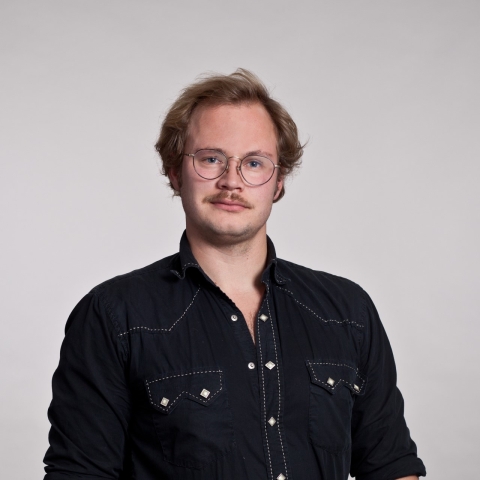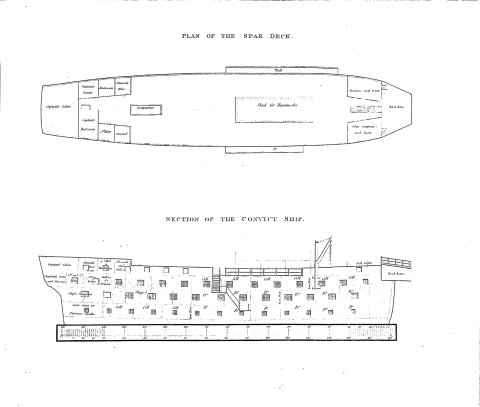

Each month, the Graduate School is sharing a Student Spotlight with our postgraduate research community, highlighting the amazing research being undertaken by our postgraduate researchers.
2 minutes
Our Student Spotlight for December is Oscar Karlsson, who is undertaking a full time PhD in History.
I am delighted to be part of the first cohort of students studying their PhDs at the University of Portsmouth and the University of Halmstad in Sweden. After finishing my master’s in Sweden, I could not imagine that I would eventually end up studying at doctoral level in the UK. The split site programme is a new, exciting, and unique opportunity to benefit from the expertise and knowledge of supervisors at both universities (Dr Karl Bell, University of Portsmouth, and Dr Tomas Nilson and Dr Helen Fuchs, Halmstad University). Thanks to a generous bursary from the University of Halmstad, my fees and living costs are covered, which means that I can fully concentrate on my research. Both universities have also funded my several archival trip and conference trips, and I have had the chance to present papers in Germany, Sweden, and the UK. With all this support, my doctorate has been very rewarding and intellectually stimulating. It has been fantastic and eye-opening to live in Portsmouth and to familiarise myself with British culture and traditions, I have also met some wonderful people from all over the world and made good friends at the University of Portsmouth.
Abysses of Misery: A Comparison of Improvised Prisons ca. 1780-1850
My research is a comparative study of improvised prisons in Portsmouth and the area around Gothenburg, Sweden, from the late 1700s to the mid-1800s. During this time frame the blueprints for the modern prison, the penitentiary, were being drawn up, and its contents, shape, and purpose were heavily debated internationally. However, before their adoption, some nations relied on ad hoc solutions to an ever-increasing number of prisoners. In the UK, the solution was to confine prisoners onboard decommissioned and demasted ships refurbished into floating prisons, the so-called prison hulks. In Sweden, the vaults of old coastal fortresses were becoming more frequently utilized as places of confinement. In my thesis, I argue that the experience of improvised prisons in Portsmouth and the area around Gothenburg shared many similarities. They were horrendous prisons, the death rates were higher than other forms of prisons, they were poorly managed, and they were consistently regarded by contemporaries as the antithesis to the envisaged penitentiary. Despite this, they persisted, and my overall research question has been to find out what made this possible.

Diagram of Convict Ship, Dated 1812.
Source: Select Committee on Expediency of Erecting Penitentiary Houses, and State of Punishment in Hulks, Third Report, Appendix, UK Parliamentary Papers.
Furthering Comparative History
The split site programme has enabled me to further the knowledge of these institutions in an international setting, thus moving away from the notion of national uniqueness. The emphasis on comparison has also been very rewarding in finding novel ways of conceptualizing the history of prisons and their relations to port towns and coastal areas. I have thus visited several archives in both Sweden and the UK, a challenge at first, especially when working in two languages, but it has been an experience from which I have greatly benefitted. I now know vastly more about what to expect from archives in both countries which has enabled me to think of many interesting new research topics. Working with University of Portsmouth academics from the former Port Towns and Urban Cultures group and now the new Centre for Port Cities and Maritime Cultures has been instrumental in both sharpening my research focus and broadening my horizons. I have thus branched out and researched the temporary quarantine station on the Swedish island of Känsö and its role in international relations with the Ottoman Empire in the early 1800s. The focus on comparisons, international history, and interdisciplinarity, facilitated by the split site program and the Centre for Port Cities and Maritime Cultures, has truly elevated my research.
If you would like to feature in our student spotlight section please email graduate.school@port.ac.uk to discuss this further.
